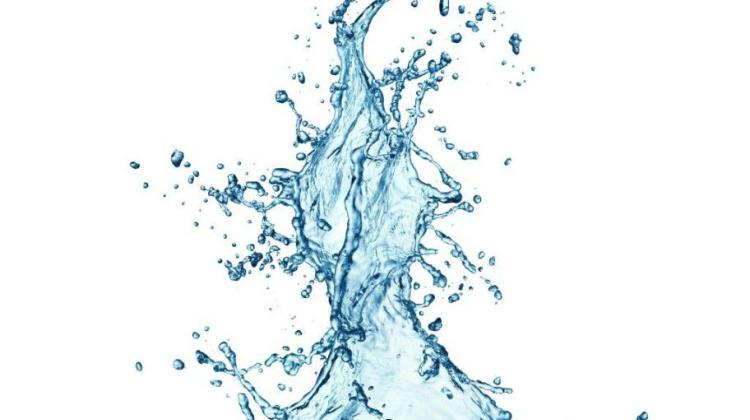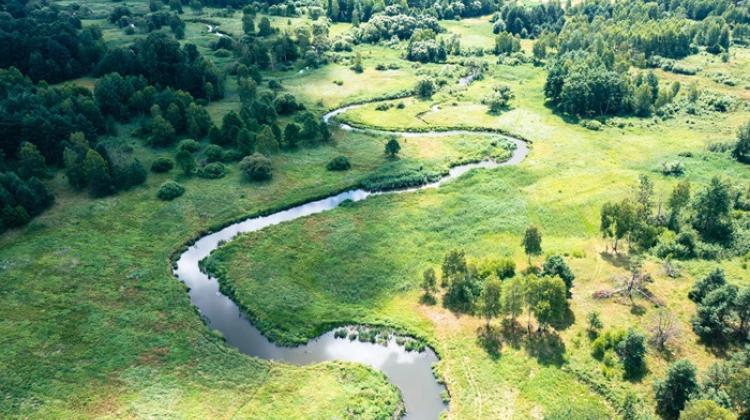Poland is becoming a desert - hydrologists alert

The largest lake in Mazovia - Lake Zdworskie, to which no water from natural sources flows - is drying. Similar problems exist in many areas of Poland. Researchers see the solution in restoring rivers to natural conditions and creating small retention tanks in cooperation with ... beavers.
According to analyses of environmental engineers from Warsaw University of Life Sciences (WULS-SGGW), who have conducted hydrological research on Lake Zdworskie for 10 years, over the six months of the summer of 2016, no water has entered the lake from the natural sources. Wielka Struga, that used to feed the lake, was dry. The reservoir still exists only because of the pipeline, through which several hundred thousand to more than one million cubic meters of water are pumped every year. This is just one of the many examples that Poland is becoming a desert.
Scientists estimate that the country\'s hydrological situation will worsen not only due to climate change, but also because of poor water management over decades.
"Proper water storage is necessary to prevent flooding and droughts. It is all the more important that climate models predict that the current trend will persist" - explained Dr. Zbigniew Popek.
WULS-SGGW professor reminded that the average annual temperatures were slightly lower a dozen or so years ago. It snowed in winter and snow cover remained for longer periods. The precipitation from the winter period would be released with the arrival of higher spring temperatures, which is when plants begin to absorb water. Now, more and more rains are falling in the winter, and water that is not retained by plants simply flows away.
In summer temperatures were also lower, and very intense rainfall did not occur so often. Heavy rainfall is very unfavourable - excess water does not have time to sink into the ground and most of it flows off, often causing floods. Intense rains do not cause an increase in water resources.
According to Dr. Popek, better water management requires the construction of new retention reservoirs that will collect water during the winter season. "There are no topographical conditions in Poland for the construction of large retention reservoirs, so we have to rely on small retention. We can build small reservoirs, restore wetlands and swamps. An excellent retention facility is a forest - the litter retains moisture very well. The State Forests have been running effective water management for many years, building and restoring thousands of small retention facilities in their area" - said the hydrologist.
He emphasised that rivers play an important role in the accumulation of water resources. The more natural they are, the better. The river flowing through the meanders is slower - hence the water stays longer in the area. In turn, the surrounding floodplains also serve as reservoirs.
Dr. Popek recommends renaturation of rivers and restoration of floodplains. In his opinion, even the highest flood embankments do not give a hundred percent confidence. "Obviously nobody will dismantle the embankments in the Vistula section of Warsaw, but in many places it is possible - and even advisable. It is a good idea to restore the rivers to the state as natural as possible" - said the expert.
In his opinion, despite the construction of the wastewater treatment plants, the rivers are far from ecologically sound. "Clean water flowing in a regulated trough with concrete banks will not make the river ecologically sound. A river is not only water that we can use economically, but above all the habitat of many animal and plant species" - said Dr. Popek. Hence the need for renaturation of rivers in order to improve the conditions of river habitats and wetlands, but also to improve water quality through the presence of different species of plants and animals.
The scientist explains that what we consider pollution, is food for plants. Plants absorb large amounts of phosphorus and nitrogen flowing from the fields. Of course, when there is too much watery vegetation, another type of pollution occurs. Excessive dead matter in rivers, and especially in water reservoirs, causes deterioration of water quality due to its anaerobic degradation.
According to the expert, proper water management will allow to deal with diminishing water resources even in the face of inevitable climate change. Dr. Popek added that beavers are great allies of man in creating small retention reservoirs.
Trivia: Producing 1 cubic meter of timber requires 1.6 million litres of water. Producing 1 ton of grain requires 900 thousand litres of water. Producing 100 litres of biofuel requires as much as 20 million litres of water. Every year, one person, with a daily diet of 3000 calories, eats food, producing which requires 1.3 million litres of water, and each of us consumes an average of 70 thousand litres of water for communal purposes.
PAP - Science and Scholarship in Poland
kol/ zan/ kap/
tr. RL
Przed dodaniem komentarza prosimy o zapoznanie z Regulaminem forum serwisu Nauka w Polsce.


















